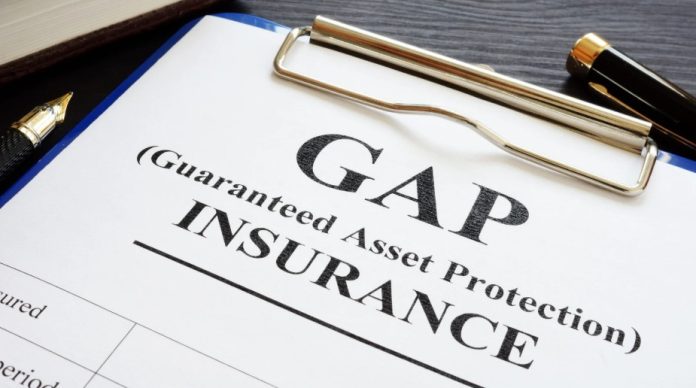Table of Contents
The last thing on your mind when buying a new car is Gap insurance, but it is such an important part of ensuring that you don’t lose copious amounts of money throughout your ownership of that car.
Many drivers assume their standard comprehensive car insurance will cover them entirely if their vehicle is stolen or totalled.
But, unfortunately, this is not the case, and this will leave you with more of a financial burden should you neglect to take out Gap insurance.
Why There’s a “Gap”?

But why is there a gap? And where does it come from? Well, the moment you drive your car out of the dealership, it will begin to depreciate.
Insurance companies will pay attention to how much your car has depreciated before deciding how much to pay out in the event that your car is declared a total loss.
So, your insurance policy will typically pay out the actual cash value of your vehicle at the time of the loss, which is determined by factors like:
- Age
- Mileage
- Condition of the car
- Market value
So, the actual problem arises when your car loan or lease balance is higher than the actual cash value.
This is especially the case in the first few years of ownership due to down payments that don’t cover a significant portion of the car’s value, long loan terms and depreciation.
What Happens Without Gap Insurance?
Let’s put all of this into a realistic example for you. So, you’ve purchased a car for £30,000 and six months later, due to an unfortunate accident, your car is totalled.
Your standard insurance policy will assess the actual cash value, and let’s say it sits at £22,000. They’ll pay you accordingly, however, you realise that you still owe £26,000 on your car loan. So, without gap insurance, you’re left with a £4,000 shortfall.
Essentially, this means that you’ll still owe the finance company a large amount of money on a car that you don’t own any longer. Also, you’ll need to find the extra money for a new down payment and a new car.
This “gap” can lead to:
- Lingering debt: You’re paying for a vehicle you no longer have.
- Credit score damage: If you struggle to pay the remaining debt, your credit score can take a hit.
- Delayed new car purchase: You may need to postpone buying a replacement vehicle until the old debt is paid off.
- Financial strain: An unexpected £4,000 debt can severely impact your savings and budget.
How Gap Insurance Bridges the Divide?
So, this is where gap insurance swoops in to save the day. GAP, also known as ‘guaranteed asset protection’, covers the difference between what your insurance will pay out for a total loss and the outstanding balance of your car loan or lease.
Let’s stick to our previous example of your outstanding £4,000. If you had taken out gap insurance, it would pay out the remaining £4,000 which will allow you to move forward without any lingering debt.
Who Benefits Most From Gap Insurance?

Gap insurance offers peace of mind to most car owners, but is also particularly valuable for those who:
- Purchase new cars: New vehicles depreciate rapidly in the first few years.
- Make a small down payment: A smaller down payment upfront means a higher loan balance relative to the car’s value.
- Have a long loan term (e.g., 60 months or more): The longer the term, the slower you build equity.
- Lease a vehicle: Most lease agreements hold you responsible for the remaining payments if the car is totalled.
- Finance a vehicle where negative equity from a trade-in is rolled into the new loan.
Don’t let the excitement of a new car blind you to potential financial risks. Gap insurance is a relatively small investment that can provide monumental protection for your financial future. It ensures that if the worst happens, you’re not left paying for a car you no longer own.
Speak to Protect Your Family today to understand your options and secure the peace of mind you deserve.
Gap insurance is a small investment that can provide significant financial security down the road, ensuring that an unfortunate event doesn’t leave you in a deep financial hole.


